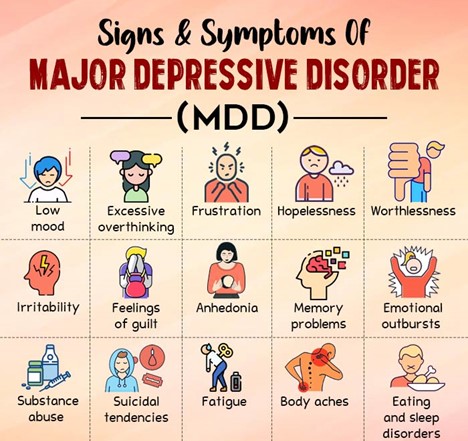A school nurse is talking with a 13-year-old female at her annual health-screening visit. Which of the following comments made by the adolescent should be the nurse's priority to address?
I haven't gotten my period yet, and all my friends have theirs."
There's a big pimple on my face, and I worry that everyone will notice it
"None of the kids at this school like me, and I don't like them either."
"My parents treat me like a baby sometimes."
The Correct Answer is C
A) "I haven't gotten my period yet, and all my friends have theirs."
While the concern about not having gotten her period yet is a valid one, it's a common experience during adolescence. Variability in the timing of puberty is normal, and addressing this concern might involve providing reassurance and education about the natural range of development.
B) "There's a big pimple on my face, and I worry that everyone will notice it."
While concerns about physical appearance are common during adolescence, they are less urgent in terms of emotional and psychological well-being. Addressing body image issues is important, but the statement about lack of social acceptance and reciprocal liking indicates potentially deeper emotional challenges.
C) "None of the kids at this school like me, and I don't like them either."
Explanation:
Adolescence is a time of significant emotional and social development. The statement about not being liked by other students and not liking them in return indicates potential social isolation and difficulties in forming positive relationships. Adolescents often seek social acceptance and peer relationships are crucial for their well-being and development.
D) "My parents treat me like a baby sometimes."
This statement suggests a common parent-adolescent dynamic where there might be conflicts about independence and autonomy. While these feelings are valid, they don't necessarily reflect a higher priority concern related to social isolation and peer relationships.
Nursing Test Bank
Naxlex Comprehensive Predictor Exams
Related Questions
Correct Answer is D
Explanation
A. Dental erosion can occur due to conditions like gastroesophageal reflux disease (GERD) or frequent vomiting, but it is not a characteristic feature of anorexia nervosa.
B. Hyperactive bowel sounds are not specific to anorexia nervosa and may be seen in various gastrointestinal disorders.
C. Hypertension is not a common finding in individuals with anorexia nervosa. In fact, hypotension (low blood pressure) is more commonly observed due to decreased cardiac output related to malnutrition and electrolyte imbalances.
D. bradycardia in a client with a new diagnosis of anorexia nervosa. Bradycardia (abnormally slow heart rate) is a common cardiovascular manifestation in individuals with anorexia nervosa. It is often a result of the body's adaptive response to conserve energy due to severe malnutrition and reduced caloric intake.
Correct Answer is A
Explanation
A."You've been feeling that your life has no meaning."This response reflects active listening and acknowledges the client's emotions. Itreflects the client's feelings and encourages them to express more about their emotions and thoughts. It shows empathy and understanding, which can help build trust and rapport.
B. "You have a great deal to live for" may seem dismissive and does not address the client's current feelings of worthlessness.
C. "It's not unusual for depressed people to feel that way" can come across as minimizing the client's unique experience and does not provide support or encourage further discussion.
D. "Why do you feel you are worthless?" might make the client feel defensive or overwhelmed, and it does not offer the same level of empathy and support as reflecting their feelings would.

Whether you are a student looking to ace your exams or a practicing nurse seeking to enhance your expertise , our nursing education contents will empower you with the confidence and competence to make a difference in the lives of patients and become a respected leader in the healthcare field.
Visit Naxlex, invest in your future and unlock endless possibilities with our unparalleled nursing education contents today
Report Wrong Answer on the Current Question
Do you disagree with the answer? If yes, what is your expected answer? Explain.
Kindly be descriptive with the issue you are facing.
